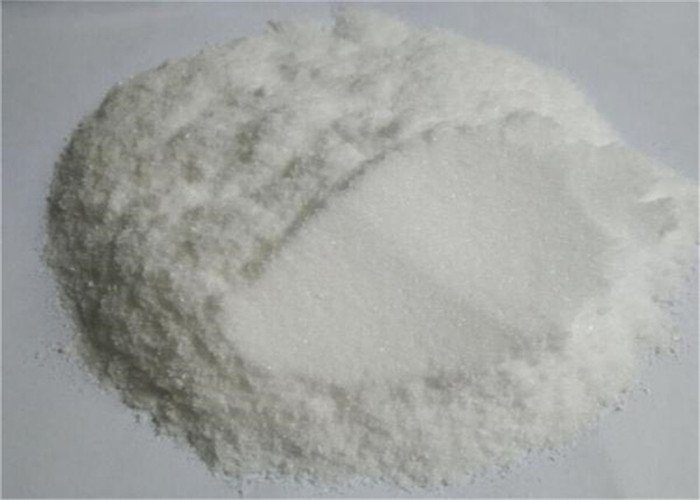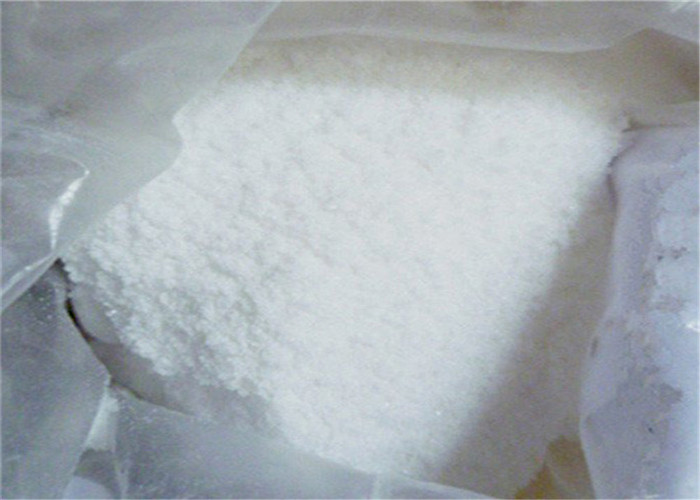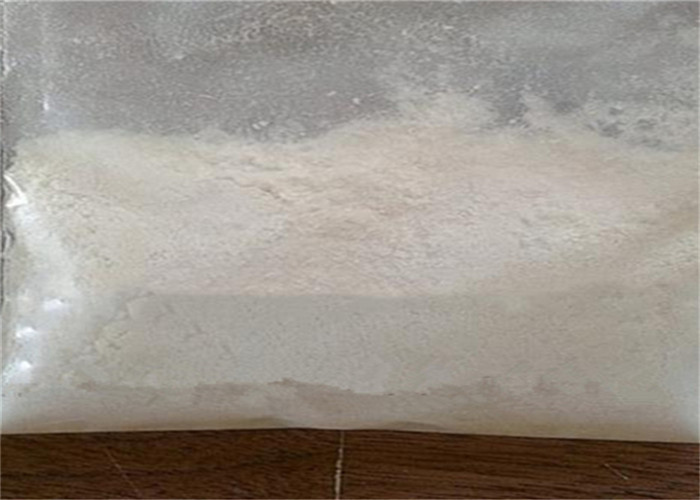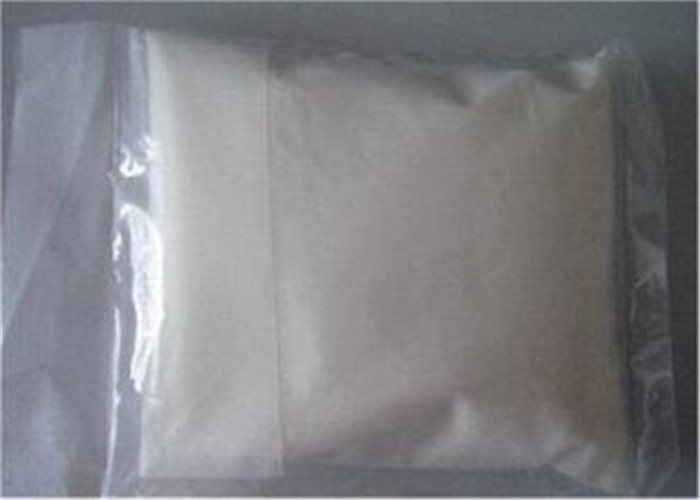99.5% Top Grade Pharmaceutical Intermediate Dapagliflozin Powder CAS: 461432-26
Supériorité
Zhongshan Latterson Biotechnology Co., Ltd., est une entreprise pharmaceutique complète, qui s'est spécialisé dans la technologie biopharmaceutique 7 années. L'entreprise est située dans la ville de Zhongshan, Province de Guangdong , Chine.
Notre usine couvre une superficie de 33500 mètres carrés, avec un environnement propre et une belle mise en page. Il existe plusieurs ateliers de grande ou moyenne taille et un centre d'assurance qualité et de recherche avec un équipement de pointe. Maintenant, nos principaux produits sont des séries de stéroïdes anabolisants, Série peptidique, Série d'anesthésie locale. Nos produits atteignent le niveau avancé du marché intérieur, dont beaucoup atteignent la norme internationale, les certificats contiennent: KASCHER , ISO 9001:2008 , BPF , SGS.
Détails de base:
Nom du produit: Dapagliflozin
Synonymes: DAPAGLIFLOZIN;(1S)-1,5-Anhydro-1-C-[4-chloro-3-[(4-ethoxyphenyl)methyl]phényle]-D-glucitol;2-(3-(4-Ethoxybenzyl)-4-chlorophényle)-6-hydroxymethyltetrahydro-2H-pyran-3,4,5-triol;Bms 512148;D-Glucitol, 1,5-anhydro-1-C-(4-chloro-3-((4-ethoxyphenyl)methyl)phényle)-, (1S)-;Dapagliflozin(BMS-512148);(2S,4R,5R)-2-(4-chloro-3-(4-ethoxybenzyl)phényle)-6-(hydroxyMethyl)tetrahydro-2H-pyran-3,4,5-triol;1-[4-Chloro-3-(4-ethoxybenzyl)phényle]-1-deoxy-beta-D-glucopyranose (1S)-1,5-Anhydro-1-C-[4-chloro-3-(4-ethoxybenzyl)phényle]-D-glucitol (2S,3R,4R,5S,6R)-2-[4-Chloro-3-(4-ethoxybenzyl)phényle]-6-(hydroxyMethyl)tetrahydro-2H-pyran-3,4,5-triol
CAS: 461432-26-8
MF: C21H25ClO6
MW: 408.875
EINECS: 1592732-453-0
density: 1.349
apparence: Blanc solide
The COA of this product :
| ITEMS |
SPÉCIFICATION |
TESTRESULTS |
| Apparence |
Off-white or white powder |
Conforme |
| Identification |
HPLC,NMR;LC-MS |
Conforme |
| Substances apparentées |
Individual impurity≤0.5% |
0.09% |
| Total impurities≤1.0% |
0.20% |
| Perte au séchage |
0,5 % |
0.3% |
| Résidu à l'allumage |
≤0.1% |
0.04% |
| Métaux lourds |
10 ppm |
Conforme |
| Essai |
≥98.0 % |
99.5% |
La description:
Dapagliflozin (ForxigaTM) is a new antidiabetic drug jointly developed by Bristol-Myers Squibb and AstraZeneca, being approved by the European Medicines Agency (EMA) on November 12, 2012. It is also the first approved SGLT2 inhibitor for the treatment of type II diabetes, being an important option in the treatment of diabetes, and is used to improve glycemic control as an adjunct to dietary and exercise for adults with type II diabetes. Dapagliflozin is a sodium-glucose co-transporter 2 inhibiteur. On January 8, 2014, the US Food and Drug Administration (FDA) have approved it for being used in the treatment of type II diabetes. Meanwhile, FDA requires the producers to conduct post-marketing research on drug-related risks. The post-marketing trial requested by the FDA includes a cardiovascular outcome trial for assessing the cardiovascular risk for high-risk patients after treatment with dapagliflozin at baseline and a study to assess the risk of bladder cancer in recruited patients. Another study will assess the bladder tumor-promoting effect of this drug on rodent animals. Two studies will assess the pharmacokinetics, efficacy and safety of dapagliflozin in pediatric patients; a set of strengthened pharmacovigilance program will monitor liver abnormalities and pregnancy outcome reports in patients receiving daglitazone. Dapagliflozin will be marketed under the tradename Farxiga by Haoeyou Pharmacy. Pharmacological effects Dapagliflozin works through inhibiting sodium-glucose transporter 2 (SGLT2), a protein in the kidney that reabsorbs glucose into the bloodstream. This allows extra glucose to be excreted through the urine, improving glycemic control without increasing insulin secretion. The use of this drug requires patients with normal renal function while patients of moderate to severe renal insufficiency should be disabled to use this drug. Single application of this product or combination with metformin, pioglitazone, glimepiride, insulin and other drugs can significantly reduce the HbA1c and fasting blood glucose of patients suffering type II diabetes. The frequency of the adverse reaction was similar to placebo with low risk of hypoglycemia, being able to reduce body weight.
The efficacy of dapagliflozin is comparable with the dipeptidyl peptidase inhibitors, and several new hypoglycemic drugs, and can also mildly lower the blood pressure and body weight. The drug has 5mg and 10mg two tablets to choose from, can be either used alone or together with insulin, including other diabetes drugs. Pharmacokinetics In healthy subjects, dapagliflozin was rapidly absorbed after oral administration with a peak time Tmax being 1 à 2 heures, a protein binding rate of 91%, an oral bioavailability of about 78% and a plasma terminal half-life of 12.9 heures. After oral administration, the drug is mainly metabolized by the uridine diphosphate glucuronosyltransferase 1A9 (UGT1A9) into the inactive metabolite in the liver with the smaller part being metabolized by the P450 enzyme and of no inhibitory or inducing effect on the P450 enzyme. Drug prototypes and related metabolites were excreted through urine (75%) and faeces (21%). Compare simultaneous administration of this product with high-fat food and with the fasting administration, Tmax can be extended by 1-fold, but the absorption did not affect the degree, so can be administrated together with the food.The pharmacokinetics of daglitazone was significantly affected by renal function. Diabetic patients with mild, moderate or severe renal insufficiency are merged to be subject to oral administration of 20 mg • d-1 daglitazone for 7 jours. The mean systemic exposure amount, compared with patients with normal renal function, is respectively 32%, 60% et 87% higher. For patients with normal renal function, mild insufficiency, moderate insufficiency and severe insufficiency, the urinary glucose excretion amount in 24 hours of steady state was 85, 52, 18 and 11g, successively. Kasichayanula et al have studied the pharmacokinetic effects of liver dysfunction on daglitazone. The patients with mild, moderate and severe hepatic insufficiency having a single oral dose of 10 mg of daglitazone, the Cmax of each group was 12% lower, 12% higher and 40% higher than that with normal liver function, respectively. The AUC of each group was significantly higher than that of normal liver function by 3%, 36% et 67%. Par conséquent, it is not recommended to apply daglitazone to patients of moderate and severe renal dysfunction. Severe liver dysfunction patients need to reduce the use of dose.Synthesis method 5-bromo-2-chlorobenzoic acid is subject to acylating chlorination, and has Friedel-Crafts reaction with phenylethyl ether for reduction of its carbonyl group, generating 5-bromo-2-chloro-4′-ethoxydiphenyl methane, further subjecting to condensation with 2, 3, 4, 6-tetra-O-trimethylsilyl-D-glucopyranosanoic acid-1,5-lactone. The anomeric carbon hydroxyl group is subject to etherification and deprotection to give 2-chloro-5-(1-methoxy-D-glucopyranose-I-yl)-4′-ethoxydiphenylmethane, and then use Et3SiH/BF3 • OEt2 for reduction to remove methoxy, followed by acetic anhydride esterification and hydrolysis to give hypoglycemic agents daglitazone with the overall yield of about 40%.the chemical reaction route of synthesizing dapagliflozin
Fig.1 shows the chemical reaction route of synthesizing dapagliflozin.
Safety Daglitazone has excellent tolerance and safety with the incidence of adverse events associated with 10 mg • d-1 daglitazone being similar to that of placebo. Common adverse events included hypoglycemia, polyuria, back pain, genital infections, urinary tract infections, dyslipidemia and hematocrit (HCT) increase. The overall risk of hypoglycemia is low, and the incidence of hypoglycemia is associated with other basic hypoglycemic agents. The incidence of hypoglycemia was higher in patients subjecting to joint treatment between daglitazone and sulfonylureas or insulin compared with placebo. Par conséquent, when this product is used in combination with insulin or insulin secretagogue, you may need to adjust the dose of the latter one.
Drug interactions This product is mainly metabolized in the liver by UGT1A9 metabolism, being the P-glycoprotein substrate. Study confirmed that the pharmacokinetics of daglitazone was not affected by metformin, pioglitazone, sitagliptin, glimepiride, voglibose, and simvastatin, valsartan, warfarin, and digoxin. The serum concentrations of the above-mentioned drugs are also not clinically significantly affected by daglitazone. Rifampicin can reduce the exposure amount of daglitazone by 22% while mefenamic acid can increase the body exposure amount by 51%, but have no clinically significant effect on 24 h urine glucose excretion.
Les usages:
1. therapeutic for diabetes I or II, and hyperglycemia
2. A sodium-glucose transporter 2 inhibiteur
Diabetes drugs:
Dapagliflozin (ForxigaTM) is a new antidiabetic drug jointly developed by Bristol-Myers Squibb and AstraZeneca, being approved by the European Medicines Agency (EMA) on November 12, 2012. It is also the first approved SGLT2 inhibitor for the treatment of type II diabetes, being an important option in the treatment of diabetes, and is used to improve glycemic control as an adjunct to dietary and exercise for adults with type II diabetes.
Dapagliflozin is a sodium-glucose co-transporter 2 inhibiteur. On January 8, 2014, the US Food and Drug Administration (FDA) have approved it for being used in the treatment of type II diabetes. Meanwhile, FDA requires the producers to conduct post-marketing research on drug-related risks.
The post-marketing trial requested by the FDA includes a cardiovascular outcome trial for assessing the cardiovascular risk for high-risk patients after treatment with dapagliflozin at baseline and a study to assess the risk of bladder cancer in recruited patients. Another study will assess the bladder tumor-promoting effect of this drug on rodent animals. Two studies will assess the pharmacokinetics, efficacy and safety of dapagliflozin in pediatric patients; a set of strengthened pharmacovigilance program will monitor liver abnormalities and pregnancy outcome reports in patients receiving daglitazone.
Effets pharmacologiques
Dapagliflozin works through inhibiting sodium-glucose transporter 2 (SGLT2), a protein in the kidney that reabsorbs glucose into the bloodstream. This allows extra glucose to be excreted through the urine, improving glycemic control without increasing insulin secretion. The use of this drug requires patients with normal renal function while patients of moderate to severe renal insufficiency should be disabled to use this drug. Single application of this product or combination with metformin, pioglitazone, glimepiride, insulin and other drugs can significantly reduce the HbA1c and fasting blood glucose of patients suffering type II diabetes. The frequency of the adverse reaction was similar to placebo with low risk of hypoglycemia, being able to reduce body weight.The efficacy of dapagliflozin is comparable with the dipeptidyl peptidase inhibitors, and several new hypoglycemic drugs, and can also mildly lower the blood pressure and body weight. The drug has 5mg and 10mg two tablets to choose from, can be either used alone or together with insulin, including other diabetes drugs.
Pharmacokinetics:
In healthy subjects, dapagliflozin was rapidly absorbed after oral administration with a peak time Tmax being 1 à 2 heures, a protein binding rate of 91%, an oral bioavailability of about 78% and a plasma terminal half-life of 12.9 heures. After oral administration, the drug is mainly metabolized by the uridine diphosphate glucuronosyltransferase 1A9 (UGT1A9) into the inactive metabolite in the liver with the smaller part being metabolized by the P450 enzyme and of no inhibitory or inducing effect on the P450 enzyme. Drug prototypes and related metabolites were excreted through urine (75%) and faeces (21%). Compare simultaneous administration of this product with high-fat food and with the fasting administration, Tmax can be extended by 1-fold, but the absorption did not affect the degree, so can be administrated together with the food.
The pharmacokinetics of daglitazone was significantly affected by renal function. Diabetic patients with mild, moderate or severe renal insufficiency are merged to be subject to oral administration of 20 mg • d-1 daglitazone for 7 jours. The mean systemic exposure amount, compared with patients with normal renal function, is respectively 32%, 60% et 87% higher. For patients with normal renal function, mild insufficiency, moderate insufficiency and severe insufficiency, the urinary glucose excretion amount in 24 hours of steady state was 85, 52, 18 and 11g, successively.
Kasichayanula et al have studied the pharmacokinetic effects of liver dysfunction on daglitazone. The patients with mild, moderate and severe hepatic insufficiency having a single oral dose of 10 mg of daglitazone, the Cmax of each group was 12% lower, 12% higher and 40% higher than that with normal liver function, respectively. The AUC of each group was significantly higher than that of normal liver function by 3%, 36% et 67%.
Par conséquent, it is not recommended to apply daglitazone to patients of moderate and severe renal dysfunction. Severe liver dysfunction patients need to reduce the use of dose.
Synthesis method:
5-bromo-2-chlorobenzoic acid is subject to acylating chlorination, and has Friedel-Crafts reaction with phenylethyl ether for reduction of its carbonyl group, generating 5-bromo-2-chloro-4′-ethoxydiphenyl methane, further subjecting to condensation with 2, 3, 4, 6-tetra-O-trimethylsilyl-D-glucopyranosanoic acid-1,5-lactone. The anomeric carbon hydroxyl group is subject to etherification and deprotection to give 2-chloro-5-(1-methoxy-D-glucopyranose-I-yl)-4′-ethoxydiphenylmethane, and then use Et3SiH/BF3 • OEt2 for reduction to remove methoxy, followed by acetic anhydride esterification and hydrolysis to give hypoglycemic agents daglitazone with the overall yield of about 40%.
Notre service
1.100% La politique de réexpédition est notre base commerciale. 100% de réexpédition immédiatement si votre colis reste en douane pendant 4 jours et n'est pas mis à jour.
2.Remboursement total pour 15 jours d'insatisfaction avec la qualité.
3.Nous pouvons fournir des échantillons gratuits.
4.Nous avons un emballage spécial ,Il peut être facilement passé à la douane. Il sera plus sûr.
5.Notre société coopère à long terme avec DHL.EMS.Fedex et ainsi de suite. Il peut être envoyé à votre main plus rapidement. La photo du colis doit être offerte dans les 12 heures suivant la réception de votre paiement de stéroïdes.
6.Si vous avez la chance de venir en Chine. Je peux te montrer notre labo.
7.Notre société a WU, MG, TT, et les moyens de paiement Bitcoin à l'avance. Vous pouvez payer 95% pour les peptides coûtent au début pour la commande, le reste peut nous offrir dans votre prochaine commande;
| Amélioration du sexe (Poudre brute) |
| Citrate de sildénafil (Viagra) |
| Tadalafil (Cialis) |
| Dapoxetine |
| Dapoxetine HCL |
| Vardénafil |
| Vardénafil HCL |
| Yohimbine HCL |
| Avanafil |
| Flibanser |
|
|
| Anesthésie locale (Poudre brute) |
| Benzocaïne |
| Benzocaïne HCL |
| Bupivacaïne HCL |
| Bupivacaine |
| Lidocaïne |
| Lidocaïne HCL |
| Pramoxine HCL |
| Prilocaïne |
| Prilocaine HCL / Propitocaïne HCL |
| Procaïne |
| Procaine HCL(Novocain / Novocaine) |
| Chlorhydrate de procaïnamide |
| Ropivacaïne HCL |
| Tétracaïne |
| Tétracaïne HCL |
| Mepivacaine |
| Mepivacaine hydrochloride |
| Trimecaine Hydrochloride |
| Dibucaine |
| Ropivacaine mesylate |
| Cinchocaine Hcl |
| Levobupivacaine |
| Chlorhydrate de ropivacaïne |
| Dimethocaine Hydrochloride |
| Chlorhydrate de proparacaïne |
| Dimethocaine Hydrochloride |
| La combustion des graisses(poudre brute) |
| T3 (Liothyronine Sodium) |
| T4 (L-Thyroxine / L-Thyroxine Sodium salt) |
| L-Carnitine |
| Theobromine |
| Synephrine |
| Synephrine HCL |
| Rimonabant |
| Lorcaserin HCl |
| CLA (Conjugated Linoleic Acid) |
| Orlistat |
| Calcium Pyruvate |
| DMAA (1,3-Dimethylpentylamine HCL) |
| L-Citrulline |
|
| Autres produits en vente chaude (Poudre brute) |
| TUDCA (Acide tauroursodésoxycholique) |
| GBL (Y-Butyrolactone) |
| 1,4-Butanediol |
| Minoxidil |
| Mélatonine |
| Trétinoïne |
| Sunifiram |
| Prégabaline |
| Phénacétine |
| Paracétamol |
| Lévamisole HCL |
| Pirfénidone |
| Épinéphrine HCL |
| Prégnénolone |
| Bromhydrate de dextrométhorphane monohydraté |
| Argireline |
| SNAP-8 1mg/flacon |
| Théophylline |
| Diclofénac sodique |
| Sel de sodium de tianeptine |
| Noopept |
| Mononucléotide bêta-nicotinamide |
| Propionate de clobétasol |
| polyéthylène glycol(CHEVILLE) |
| Kétoprofène |
| 1,3-Chlorhydrate de diméthylbutylamine |
| Polyvinylpyrrolidone |
| Baricitinib |
| Diprophylline |
| Aminophylline |
| Tianeptine |
| Sulfate de tianeptine |













 Directeur commercial
Directeur commercial